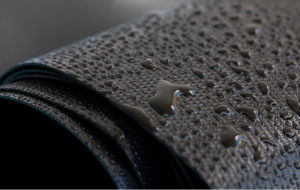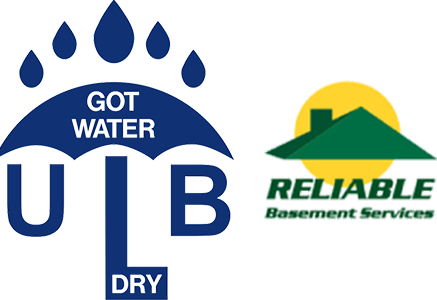
When it comes to basement waterproofing, one of the most effective options is to prevent water seepage is to install a waterproofing membrane. A basement waterproofing membrane is a barrier that is applied to the exterior or interior of the basement walls to prevent water from entering the space. These membranes are typically made from materials such as rubber, PVC, or asphalt, and they are designed to withstand the pressure of water and create a watertight seal.
Are you thinking about having a basement waterproofing membrane installed? Not sure how to choose the right option for your home? To help you decide, this basement waterproofing company in South Holland, Illinois is going to review some of the key things you should know below.
Types of Basement Waterproofing Membranes
There are two main types of basement waterproofing membranes: external and internal. External membranes are installed on the outside of the basement walls and provide a protective barrier against water. They are typically applied during the construction phase of a home or during a major renovation. Internal membranes, on the other hand, are installed on the inside of the basement walls and are an effective solution for existing homes. They are often used in conjunction with other waterproofing methods, such as drainage systems, to provide comprehensive protection against water infiltration.
Factors to Consider When Selecting a Basement Waterproofing Membrane
Choosing the right basement waterproofing membrane is crucial to the success of your waterproofing project. There are several factors your basement waterproofing company in South Holland, Illinois will help you consider before selecting a membrane for your home. The first factor to consider is the type of membrane that is most suitable for your basement. External membranes are ideal for new constructions or major renovations, as they provide superior protection against water. Internal membranes, on the other hand, are a cost-effective solution for existing homes and can be easily installed without major construction work.
Another important factor to consider is the material of the membrane. Rubber membranes are highly durable and can withstand extreme weather conditions, making them an excellent choice for external applications. PVC membranes, on the other hand, are more flexible and can conform to the shape of the basement walls, making them ideal for internal applications. Asphalt membranes are also a popular choice due to their affordability and long-lasting properties.
The installation process is another factor to consider when selecting a basement waterproofing membrane. External membranes require excavation around the foundation of your home, which can be time-consuming and costly. Internal membranes, on the other hand, can be installed without major construction work, making them a more convenient option for existing homes.
The Process of Installing a Basement Waterproofing Membrane
The installation process of a basement waterproofing membrane will vary depending on the type of membrane and the specific needs of your basement. Here is a general overview of the process:
- Assessment: A professional waterproofing company in South Holland, Illinois will start by assessing your basement and identifying any underlying issues that need to be addressed. They will also determine the most suitable type of membrane for your specific needs.
- Preparation: The next step is to prepare the basement walls for the installation of the membrane. This may involve cleaning the walls, repairing any cracks or damage, and ensuring a smooth surface for the membrane.
- Installation: The membrane is then applied to the basement walls according to the manufacturer’s instructions. External membranes are typically applied during the construction phase or major renovations, while internal membranes can be installed without major construction work.
- Finishing Touches: Once the membrane is installed, the waterproofing company will ensure that all seams and joints are properly sealed to create a watertight barrier. They may also install additional waterproofing measures, such as drainage systems, to provide comprehensive protection against water infiltration.
- Post-Installation Inspection: After the installation is complete, a professional waterproofing company will conduct a thorough inspection to ensure that the membrane is properly installed and functioning as intended.
Looking for a Basement Waterproofing Company in South Holland, Illinois?
Are you ready to get in touch with a basement waterproofing company in South Holland, Illinois that can help you pick out the right waterproofing membrane for your basement? If so, do not hesitate to get in touch with our team at ULB-DRY Waterproofing. Contact us today to schedule an appointment.





